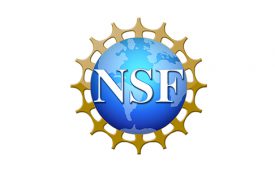-

Opportunities in Basic Research in Developmental Sciences and in the Science of Learning at NSF
Apply for Developmental Sciences funding opportunities by clicking here, and apply for Science of Learning funding opportunities by clicking here. Reflecting promising new directions in research in two main areas in psychological science, research in
-
NIH-Funded Course on “Strengthening Casual Inference in Behavioral Obesity Research”
The University of Alabama at Birmingham invites you to join their NIH-funded short course on “Strengthening Causal Inference in Behavioral Obesity Research,” scheduled to take place Monday through Friday, July 24–28, 2017. The program aims to help attendees better identify causal relations among variables that lead to obesity and discern avenues for treatment and prevention. The nine course modules are designed to provide rigorous exposure to the key fundamental principles underlying a broad array of techniques. Limited travel scholarships are available to young investigators and the application deadline is March 31st, 2017.
-

Summer Research Internship Opportunity for Undergraduate Students with an Interest in Alcohol and Addiction Research
Undergraduate students interested in alcohol and addiction research are invited to apply to the University of Missouri’s Alcohol Research Training Summer School & Internship (MU-ARTSS). This program, funded by the National Institute on Alcohol Abuse
-

Help Apply Psychological Science to Improve Federal Programs with the U.S. Office of Evaluation Sciences
The federal government’s premier organization applying behavioral science to improve federal programs is hiring. The Office of Evaluation Services (OES), a team of social and behavioral researchers applying their knowledge and skills in partnership with
-

In Memoriam: Annette Karmiloff-Smith
Past APS Board Member Annette Karmiloff-Smith, a world-renowned developmental and cognitive neuroscientist, passed away Dec. 19, 2016 after a long illness.
-
How Do Creative Ideas Get Heard?
Imagine you are an employee at a widget-making factory. Sitting at your desk one day, you have an epiphany: You’ve thought of a new way to create widgets that should increase production by threefold. But will your supervisor be supportive of your new idea, or will it be cast aside without due consideration? In a 2015 article published in the European Journal of Work and Organizational Psychology, Roy B. L. Sijbom (University of Amsterdam, the Netherlands), Onne Janssen (University of Groningen, The Netherlands), and Nico W. Van Yperen (University of Groningen, The Netherlands) examined when and why leaders support radical creative ideas voiced by their subordinates.

